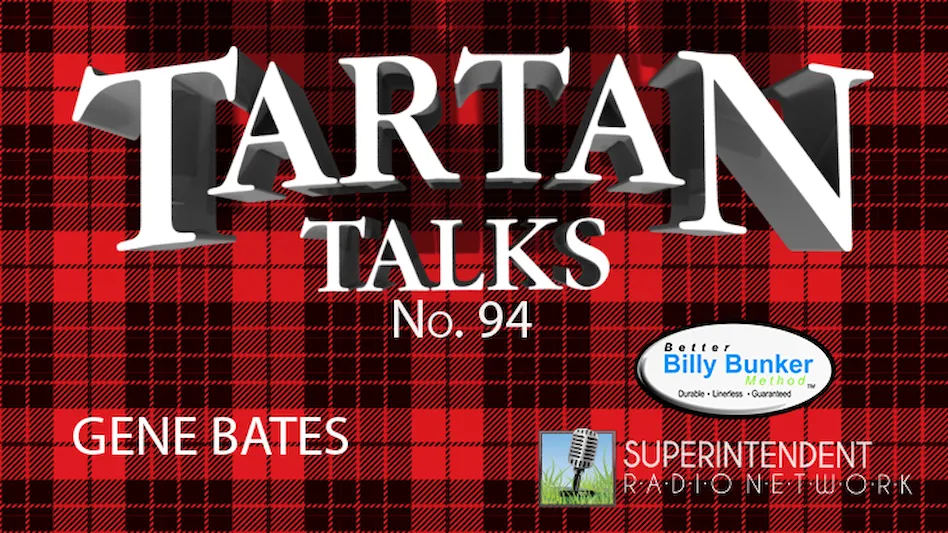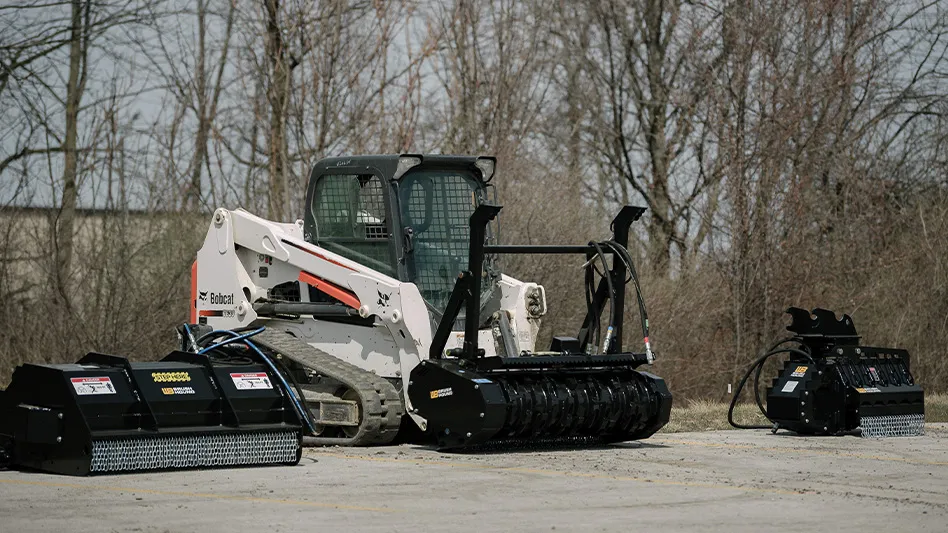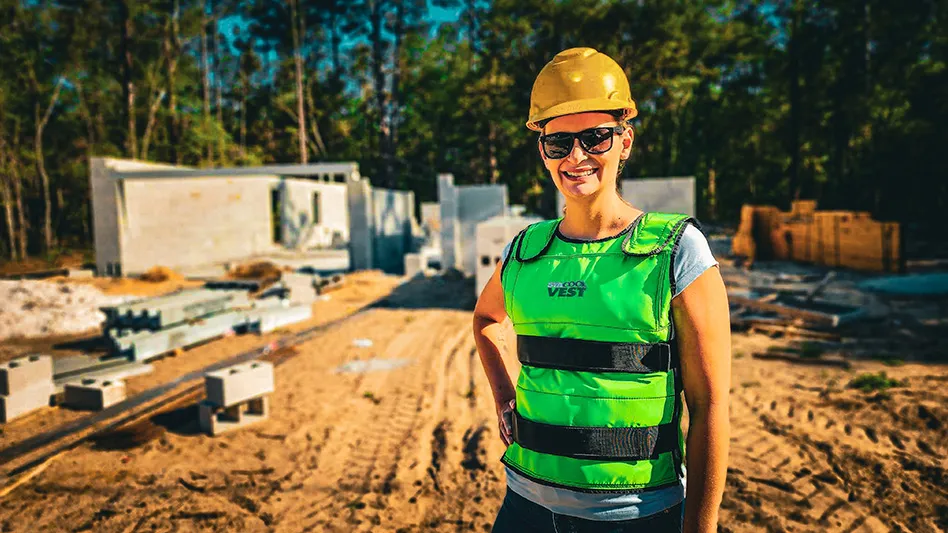 Skeet shooting. Cross-country skiing. Tennis. Croquet. Ice rinks. Pools and spas.
Skeet shooting. Cross-country skiing. Tennis. Croquet. Ice rinks. Pools and spas.
The list is endless, as if today's superintendents don't have enough to manage just trying to outwit Mother Nature and keep the turf green. The days of turfheads mowing grass 12 hours a day are long gone — especially in today's economic climate.
With budget cuts and reduced staff, superintendents are asked to manage more and more things outside their normal realm of expertise. Some surveyed estimate they now spend as much as 10 percent of their labor budget on non-golf items. As one seasoned super reasons, it's best to be a jack of all trades, and master of some, than a turf boss that is expendable. According to Anthony Williams, it's become common for superintendents to develop many sub-disciplines and take on managing the budget and labor for areas that traditionally was not a hat worn by the superintendent.
"A lot of guys have become progressive and understood that the more valuable you are the more safe and secure their job is," says Williams, CGCS and director of grounds at Stone Mountain Golf Club by Marriott in Stone Mountain, Ga. "On the other side, you've got the guy who says, 'Don't they realize that turf is all about tees, fairways and greens and I don't care?' Well, most of those guys are dinosaurs that are becoming extinct."
A certified golf course superintendent since 1998, Williams became a certified arborist in 2008 to expand his skills and help stave off his "extinction." In his current role at Stone Mountain, this added expertise has come in handy since the golf course is located inside a state park where trees are sacred and native forest takes up more acreage than the manicured turf.
"Superintendents can wear a lot of hats, but it's sometimes difficult because we often get stereotyped to have a certain skill set," says Williams. "In these times we need to grow those skill sets, but sometimes you have to be willing to say, 'I am about as thin as I can get.' Five years ago I became a certified arborist, so I could perform all the arborist duties for the park. This has been huge because it opened up new doors.
"My background is in agriculture and forestry, which helped, but there are not many turf guys who are also a tree guy," he adds. "I've been able to have a major influence on tree policies here at the park. It also gave me a different, deeper understanding of that discipline."
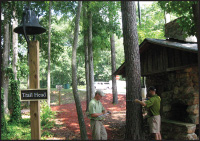 Green keepers expand their job skills to include the construction and maintenance of nature trails. Green keepers expand their job skills to include the construction and maintenance of nature trails. |
For other superintendents who subscribe to Williams' point of view and prefer not to go the way of the dodo bird: How can they expand their skills and prove their value, while making sure the golf operations don't suffer? And, how do they fit these non-golf duties into their shrinking capital and labor budgets? It's a balancing act, says Williams. But, like any other tough decision superintendents must make, one must weigh the positives and negatives and do a cost analysis to see whether it makes more sense to keep certain projects in-house or outsource them.
"Sometimes things are outside your area of expertise," says Bruce Williams, principal, Bruce Williams Golf Consulting, Manhattan Beach, Calif. "For example, if you only lay lines down on the tennis courts once per year, maybe someone can do it better and cheaper. You need to do a cost analysis. Like all business plans, you have to analyze how it fits in for your particular situation and what advantages there are for outsourcing versus keeping it in house. You still have to manage the duties whether you outsource them or not."
Williams recalls one of his early jobs as an assistant where his boss estimated only 20 percent of his time was spent on managing golf and turf operations; the balance was spent managing curling, skeet shooting, clubhouse maintenance, water plant, clay tennis courts, clubhouse grounds and even vegetable gardens.
Skeet shooting was one pasttime Bob Maibusch knew very little about before taking the job at Hinsdale Golf Club in the small village of Clarendon Hills, Ill.. While he does not shoot skeet, his crew is responsible for setting up and taking down the club's skeet-shooting range, which goes over their ninth green. It's a lot of labor for a short season (November to February, Saturdays only from 11 a.m. to 3 p.m. due to local bylaws). It's certainly not a labor of love, but it's a job Maibusch accepts as part of his overall role.
It's not a difficult job – Maibusch equates putting it together like "Tinker Toys" – but it is labor intensive. "In late October, it takes four or five days for six people to set it all up," he explains. "Then, come early March, it takes a full week for eight people to clean it up and remove the fields. It's a substantial hit on our payroll and it's a complete mess to clean up in the spring."
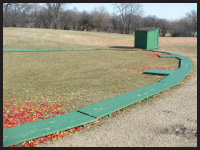 The skeet range that Bob Maibusch, CGCS, Hinsdale Golf Club, set up/take down and clean up. It shoots over the facilities 9th and 18th greens so all the bunkers need to be covered on those holes. The skeet range that Bob Maibusch, CGCS, Hinsdale Golf Club, set up/take down and clean up. It shoots over the facilities 9th and 18th greens so all the bunkers need to be covered on those holes. |
Because of this added budget line, Maibusch breaks out this cost for presentations to his board of directors or other committees, so everyone understands that while other clubs may be doing more with less, they don't have this added expense.
"I probably spend about 6-8 percent of my labor budget on non-golf items," he says. "That's why, when general club surveys are done by the Chicago Golf Association, for example, and they are distributed to our board of directors, I can remind them why our expenses are higher. It's a constant educating process."
Maibusch also has some obligations to remove snow from the heated platform tennis courts during the winter months, which is another hit to his budget. In the past, his department maintained six clay tennis courts, but fortunately, he says, 10 years ago the grounds department divorced themselves from that responsibility, as they had to resurface them every year in the spring, which is the busiest time to get the golf course open.
Last year, Hinsdale Golf Club built a new platform tennis facility and warming house, more like a clubhouse, with an indoor and outdoor fireplace. Once again, Maibusch and his crew were part of this project. "We did all the site work … the grading and the drainage," he explains. "The project probably cost half a million and we knocked that price down by a couple hundred thousand through the work we did."
If that was not enough, they installed an elevator in the clubhouse. With a limited work space, it took his crew three weeks to haul dirt out; they hand-dug the hole using five-gallon buckets. "It becomes a juggling act when you are doing things during the golf season," he says. "You have to explain to people why some of the detail work didn't get done on the golf course because you are saving them quite a bit of money somewhere else. At the end of the day though, it justifies us having extra staff and it saves the club money. Like most everybody else, if something needs to be done they usually come to us first. It keeps things interesting."
For Williams, taking on other duties as assigned outside the normal scope of a superintendent's work is rewarding. It allows the environmentalist to integrate some of the programs he's implemented on the golf course to other areas of Mariott's operations.
"The term I always use is environomics," he says. "We are blending our environmental programs directly into the business plan. It's having a huge impact and adding value to the bottom line. It would be easier for them to dismiss our contributions if golf was our only contribution.
"Sometimes guys might say, 'I've got more than I can handle on the golf course.' I ask, is this really true or is it how you see it? I could spend every second on the golf course and my job will never be done. But, if I don't get progressive enough five years from now how are they going to evaluate whether I'm valuable as an asset or not an asset any longer?"
Now the seasoned veteran, who has lived through the ups and downs of the economy, Williams passes on this advice to his crew and to fellow superintendents.
"I encourage my guys and teach them to have that jack of all trades, master of some skill set," he says. "Most say, you are a master of none, but that's not what we are doing. What we are saying is we want to have the highest credentials in the key areas, but we want this other subset of skills… handle minor electricity, basic carpentry and plumbing. This allows you to add value to the organization and when you demonstrate a lot of different ways you add value then that speaks volumes when they start downsizing or restructuring. At its peak, when golf was booming, you could subcontract a lot of different things and it made sense, but now everything is scrutinized. You can't just say because we've always done it a certain way that that's OK."
David McPherson is a Toronto-based freelance writer.

Explore the December 2011 Issue
Check out more from this issue and find you next story to read.
Latest from Golf Course Industry
- Devising safer landings
- SiteOne adds Durentis to product offerings
- Resilia available for purchase in Hawaii
- What can $1 million do for expanding the industry workforce?
- Captivating short course debuts on Captiva Island
- Wonderful Women of Golf 35: Carol Turner
- The Andersons acquires Reed & Perrine Sales
- Excel Leadership Program awards six new graduates


